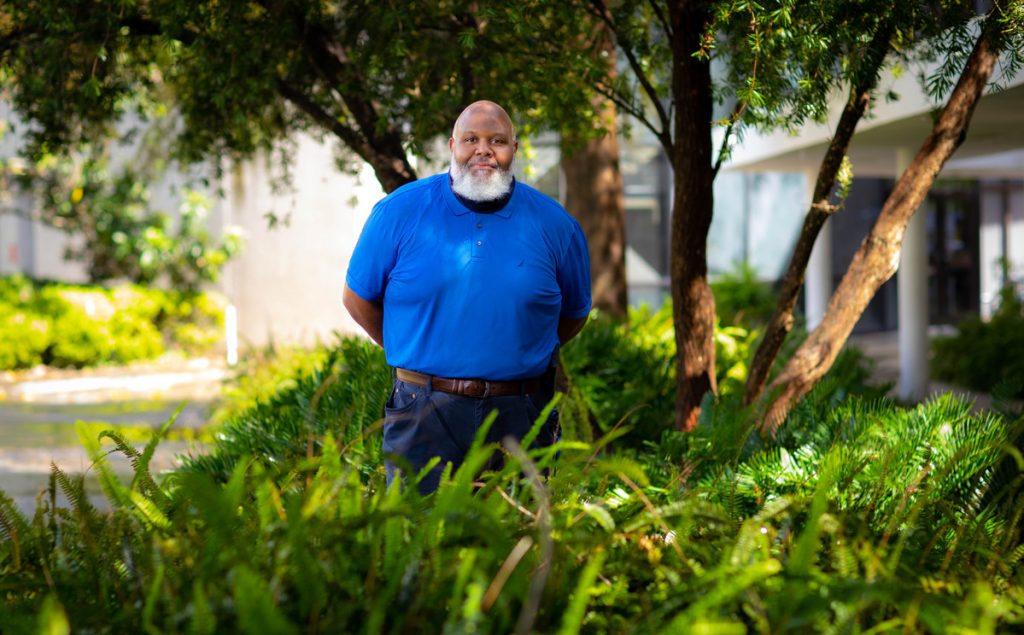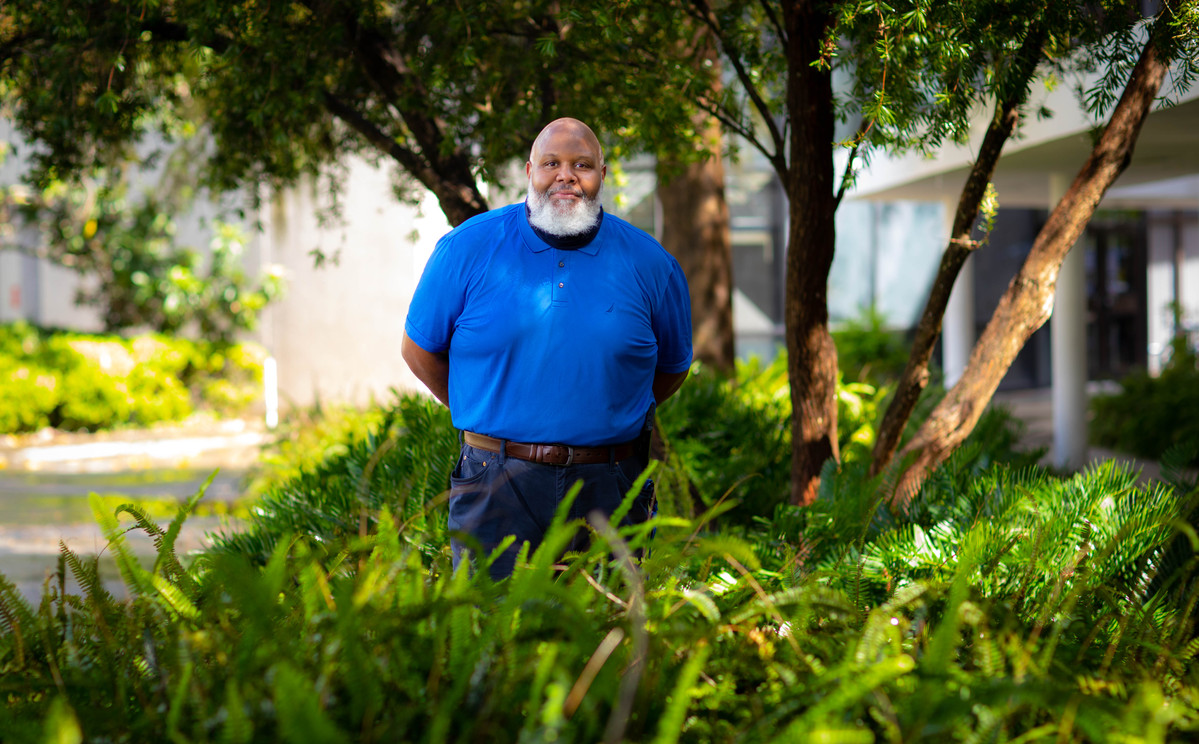
November 16, 2020 – Police departments and sheriff departments, they should resemble the communities they serve.
I joined the police department in 1996 in Baltimore, Maryland, and back then people were like, “you don’t join the police if you’re black!” But I told them the same thing then that I do now as an educator – I wanted to make a difference. I wanted to be the change. I’m not saying don’t march or don’t protest, but we have to encourage people who really want to make a change, they’ve got to ask themselves, “What’s my endgame?” If you really want to make a difference in your community, you need to sign up to be a social worker, or go to college and get your degree in criminal justice or paralegal studies, or become a civil rights attorney, or a police officer or a sheriff. That’s how you make a difference. You hold those positions to the highest standards.
I’m in charge of the Criminal Justice program at Santa Fe College. Anyone can take my classes; anyone who wants to understand and comprehend the criminal justice system in this country can take my classes. I teach Introduction to Criminal Justice, Criminal Investigation, Police Ethics & Accountability, Community Policing, Patrol Functions, Constitutional Law, Criminal Procedure & Evidence, and I teach the bridge courses over the summer for our corrections and police academy graduates who want to go on to get a head start on their associates degree in Criminal Justice.
Currently, you aren’t required to have a degree to be a police officer. But our nation is moving in that direction because there are police making bad decisions, across the country. People are calling for the defunding of police. In my classes, we discuss what defunding means. My classes have always been edgy. The purpose of coming to college is to learn things you didn’t know. My students, they’re advised early in the class “you’ll hear things you may not like and that may make you feel uncomfortable.” But that’s how learning takes place. For example, most people, most adults, do not know the origin of policing in the United States. I went to two police academies and they both told me the origin was in 1829 and the London Metropolitan Police Act written by Sir Robert Peel. That is inaccurate. The true origin of policing in the U.S. goes back to the Slave Patrol in 1704, Charleston, South Carolina. The Slave Patrol was made up of 10 white males, sometimes females, who were not obligated to the militia, and their job was to basically to catch slaves and take them back to their plantation and owners and then to punish them in front of the other slaves for running away. So that is our inception of policing in the united states. I’ve had some students who feel uncomfortable hearing that. I told one – and his dad – to look it up. They found articles proving what I had taught. I never present facts that aren’t fact. And I’m asked often, but I try my best not to include my opinions. It’s not a Dr. Jones opinion class. If you’re a good professor, you don’t put your opinion in.
Students taking my classes get a chance to learn from somebody who has actually worked just short of two decades in a large municipal police department. The Washington, DC, Virginia, Maryland area has one of the highest crime rates in the nation. I handled cases involving everything from murders, rapes, armed robberies, home invasions, bank robberies, hostage situations, abductions – you name it, I’ve done it. I think the real life experience I bring to the classroom helps prepare students, particularly those who plan to have a career in law enforcement.
Derrick Jones, Ph.D., Assistant Professor, Criminal Justice Technology Program

